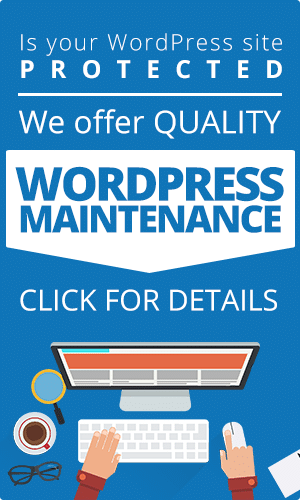Welcome to our guide on understanding SEO! Search engine optimization (SEO) is a crucial aspect of digital marketing that can greatly impact your website’s visibility and traffic. In this guide, we will cover the fundamentals of SEO, including how search engines work, the importance of keyword research, and how to optimize your content and website for search engines. Whether you’re a business owner looking to improve your online presence or a digital marketer seeking to enhance your SEO skills, this guide will provide you with the knowledge and tools you need to succeed in the ever-changing world of SEO.
Understanding SEO and Search Engines
Before we dive into the details of SEO, it’s important to understand how search engines work. Search engines are software programs that crawl, index, and rank web pages based on relevance and authority. The goal of search engines is to provide users with the most relevant and trustworthy information based on their search queries.
Types of Search Engines
The two most popular search engines are Google and Bing, which together account for over 90% of all search traffic. There are also specialized search engines that focus on specific types of content, such as YouTube for videos or Amazon for products.
Search Engine Algorithms
Search engine algorithms are complex formulas that determine the relevance and authority of web pages. These algorithms take into account various factors such as keyword density, page load speed, mobile responsiveness, and backlinks. Search engine algorithms are constantly evolving, and SEO experts need to stay up-to-date on the latest changes in order to maintain their rankings.
Keyword Research
Keyword research is the process of identifying the keywords and phrases that people use to search for information related to your business or industry. Keyword research is crucial because it helps you understand what topics and questions your target audience is interested in, and allows you to optimize your website accordingly.
Types of Keywords
There are three types of keywords: head, body, and long-tail. Head keywords are short and general, such as “shoes” or “books”. Body keywords are more specific, such as “running shoes” or “science fiction books”. Long-tail keywords are highly specific and targeted, such as “best running shoes for flat feet” or “classic science fiction books”.
Keyword Research Tools
There are many keyword research tools available, both free and paid. Google Keyword Planner is a popular tool that allows you to see how often certain keywords are searched for and how competitive they are. Other popular tools include SEMrush, Ahrefs, and Moz.
Analyzing Keyword Competition
Once you have identified your target keywords, it’s important to analyze the competition for those keywords. This involves looking at the websites that currently rank for those keywords and assessing their content, backlinks, and other factors. This analysis can help you identify opportunities to improve your own content and backlinks in order to outrank your competitors.
On-Page Optimization
On-page optimization refers to the process of optimizing individual web pages in order to improve their ranking in search results. On-page optimization involves a variety of factors, including content, HTML tags, and images.
Optimizing Content
The content on your website is one of the most important factors in SEO. In order to optimize your content, you need to ensure that it is high-quality, relevant, and optimized for your target keywords. This involves using your target keywords strategically throughout your content, but avoiding keyword stuffing, which can actually hurt your rankings.
Content hubs are also a very powerful way of optimizing and organizing your content.
Optimizing HTML Tags
HTML tags are used to structure the content on your web pages. There are several important HTML tags that can impact your SEO, including title tags, meta descriptions, and header tags. Title tags are the most important HTML tag for SEO, as they provide a brief description of the content on the page and appear in search results.
Image Optimization
Images can also impact your SEO, particularly if they are used to support your content. When it comes to image SEO, you should use descriptive filenames and alt tags that include your target keywords. You should also ensure that your images are compressed and optimized for fast loading times.
Off-Page Optimization
Off-page optimization refers to the factors that impact your website’s ranking that are outside of your website’s control. The most important off-page factor is backlinks, which are links from other websites to your website.
Backlinks
Backlinks are important because they signal to search engines that other websites consider your content to be valuable and trustworthy. However, not all backlinks are created equal. High-quality backlinks from authoritative websites are much more valuable than low-quality backlinks from spammy websites.
Earning Backlinks
There are several strategies for earning backlinks, including creating high-quality content that other websites will want to link to, reaching out to other websites to request backlinks, and participating in online communities and forums.
Social Media
Social media can also impact your SEO, although the impact is indirect. By sharing your content on social media, you can increase its visibility and potentially earn backlinks from other websites. Additionally, social media profiles can appear in search results, providing another avenue for potential customers to find your business.
Local SEO
Local SEO is the process of optimizing your website for local search results. Local SEO is particularly important for businesses with a physical location, as it can help them appear in local search results when potential customers search for businesses in their area.
Google My Business
The most important local SEO factor is Google My Business, which is a free tool that allows businesses to manage their online presence on Google. By creating and optimizing a Google My Business listing, you can improve your visibility in local search results and provide potential customers with important information about your business, such as your address, hours of operation, and customer reviews.
Citations
Citations are mentions of your business on other websites, such as online directories or local news websites. Citations are important for local SEO because they signal to search engines that your business is legitimate and trustworthy.
Mobile Optimization
Mobile optimization is the process of ensuring that your website is optimized for viewing on mobile devices, such as smartphones and tablets. With the majority of internet traffic now coming from mobile devices, mobile optimization is essential for SEO.
Responsive Design
One way to optimize your website for mobile devices is to use a responsive design. Responsive design means that your website will adjust its layout and content to fit the size and shape of the user’s screen. This provides a better user experience and can improve your SEO.
Page Speed
Another important factor in mobile optimization is page speed. Mobile users expect websites to load quickly, and if your website takes too long to load, users are likely to leave and go to a competitor’s website. To improve your page speed, you can compress images, minimize the use of plugins and scripts, and use a content delivery network (CDN).
Tracking and Analytics
Finally, it’s important to track and analyze your SEO efforts to see what’s working and what’s not. There are many tools available for tracking and analyzing your SEO performance, including Google Analytics, which provides detailed information about your website’s traffic, including the sources of your traffic, the pages that are most popular, and the keywords that are driving traffic to your site.
Conclusion
SEO is a complex and ever-evolving field, but with the right strategies and tools, you can improve your website’s visibility and ranking in search engine results pages. By understanding search engines, conducting keyword research, optimizing your content and HTML tags, earning backlinks, and optimizing for mobile devices, you can create an effective SEO strategy that will drive traffic to your website and help your business succeed online.
Looking to boost your website’s visibility and drive more traffic to your business? Contact Innovative Solutions Group today to learn how our expert SEO services can help you achieve your online goals. With our proven strategies and cutting-edge tools, we can help you improve your search engine rankings, attract more customers, and grow your business. Don’t wait – contact us now to get started!






